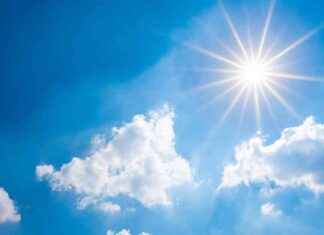“By the end of this movie, you won’t shop the same way again. » This is the objective of journalist Guy Lagache, who, after A President, Europe and War (2022), is launching C’est pour demain, a series of investigations devoted to the impact of our consumption patterns on the environment. Dedicated to food, the first episode opens the special programming that TMC dedicates for 48 hours to the International Day of Biodiversity on May 22.
We might as well warn the viewer, the journalist is in all the plans. To the co-directing, to the commentary and to the image – in profile, pensive, walking, from a distance, in close-up… That said, we can only appreciate the qualities of the documentary: going against the grain of preconceptions, abandoning the anecdotal to focus on what works on a large scale, taking into account concrete concerns in order to show that real solutions for the future exist.
This first opus is thus devoted to food production, because “our plates weigh more heavily on the climate than our cars”, i.e. “37% of global greenhouse gas emissions”, compared to 28% for transport. The first report begins in a shopping center parking lot, in front of a KFC restaurant, where four young people are going to serve as guinea pigs. “The ecological awareness of the younger generation is having an effect: fast food restaurants are getting involved,” underlines the voice-over. One in ten burgers is now vegetarian, or 700,000 per year. It’s a beginning.
Another product that has seen its consumption explode: chicken. “On Earth, we consume three tons of chicken per second,” which justifies wondering whether, as buyers think, chicken is “greener.” Here again, the subject begins with a local report, with a family in Yvetot (Seine-Maritime), before leaving for Brittany, the Pyrenees, and Brazil (Amazon and Cerrado). Guy Lagache checks everything, whether against an organic breeder or a large soy producer in Brazil – which feeds French chickens.
fly factory
The second part of the film is devoted to possible solutions, favoring realism and concreteness. Since nearly 70% of food products are sold in hypermarkets or supermarkets, Guy Lagache goes to the shelves of these supermarkets to read the labels, look at the origins of fruits and vegetables, or to follow an aquaponics producer. (closed circuit irrigated soilless cultivation) which delivers its basil.
More surprising, the visit to the Innovafeed factory in Nesle (Somme), the largest European producer of… black soldier flies, which could feed our chickens and whose “carbon impact is 90% lower than that of Brazilian soya”.
The last section is devoted to early products, which travel on average 3,000 kilometers before arriving on the shelves. Following the same sequence, from observation to solutions, the report begins in Sartrouville (Yvelines), where the Champerché vertical farm is installed in a parking lot; before Chevilly (Loiret), in the largest meat-free meat factory in France; and Tibro, in Sweden, in an avant-garde factory, which, since 2015, has produced one hundred salads per minute, sold in supermarkets and cheaper than imported salads. QED.






